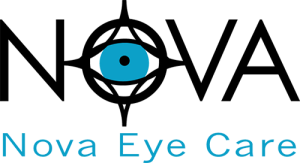Have Questions?
Check out our Frequently Asked Questions.
1. How often should I have an eye exam?
Routine eye exams are essential for maintaining healthy vision and catching potential issues early. The American Optometric Association recommends:
- Children (6 months to 18 years): Eye exams at 6 months, 3 years, and before starting school, followed by annual exams.
- Adults (18 to 64 years): Comprehensive exams every 1–2 years, depending on vision needs and overall eye health.
- Seniors (65+ years): Annual eye exams to monitor for age-related conditions like cataracts, glaucoma, and macular degeneration.
- Patients with specific medical conditions or vision issues (e.g., diabetes, keratoconus): More frequent visits may be necessary, as determined by your eye doctor.
If you’re experiencing vision changes, discomfort, or other eye-related concerns, schedule an appointment with us right away.
2. Do you treat medical eye conditions?
Yes, our practice provides comprehensive care for various medical eye conditions, including:
- Dry Eye Syndrome: Treatment options such as specialized drops, RF and IPL therapies, and lifestyle recommendations.
- Keratoconus and Corneal Irregularities: Advanced diagnostics using the Pentacam and fittings for specialty lenses like scleral lenses.
- Glaucoma: Management and treatment plans to monitor and control this condition.
- Eye Infections and Injuries: Prompt care to address redness, swelling, or trauma.
- Diabetic Retinopathy and Other Conditions: Routine screenings and care for patients with diabetes or other systemic health concerns affecting the eyes.
If you’re unsure whether we can help with your specific condition, please call us or schedule a consultation.
3. What should I bring to my appointment?
To ensure we can provide the best care during your visit, please bring the following:
- Insurance Information: Your vision or medical insurance card(s).
- Eyewear and Contacts: Your current glasses or contact lenses, including any prescriptions or cases.
- Patient Forms: If you’ve completed forms online, bring them along, or plan to fill them out when you arrive.
- Medication List: A list of any medications, vitamins, or supplements you’re currently taking.
- Payment Methods: If applicable, for co-pays or out-of-pocket expenses (we accept FSA and HSA payments).
If you’re a new patient, plan to arrive 15 minutes early to complete any necessary paperwork or testing.
4. Why is it necessary to fill out medical forms each year?
Keeping your medical records up to date ensures we can provide you with the safest and most effective care. Here’s why it’s important:
- Changes in Medical History: Your health status may change over time, and conditions like diabetes, high blood pressure, or allergies can impact your eye health.
- Medication Updates: New prescriptions or changes to current medications might affect your vision or interact with treatments we provide.
- Insurance Information: Insurance policies can change annually, so updated details help us process claims accurately.
- Accurate Diagnoses and Care Plans: Up-to-date information allows us to tailor exams, treatments, and recommendations to your unique needs.
We strive to make completing forms as convenient as possible, offering online options and assistance in the office if needed.
5. Why is it necessary to understand how your medical insurance and vision plan are used?
Knowing how your insurance works ensures you get the most out of your benefits and avoid unexpected costs. Here’s how understanding your coverage helps:
- Vision Plans vs. Medical Insurance: Vision plans typically cover routine eye exams, glasses, or contacts, while medical insurance may apply to eye conditions like infections, dry eye, or glaucoma.
- Out-of-Pocket Costs: Knowing co-pays, deductibles, and coverage limits helps you budget for your visit.
- Maximizing Benefits: Many plans have annual allowances for eyewear or treatments, and understanding these benefits ensures you don’t miss out.
- Coordination of Coverage: If you have both types of insurance, we can help determine which plan applies to your visit.
If you have questions about your coverage, our team is happy to review your benefits and help you navigate the process.
6. Why is there a separate fee for a contact lens examination?
A contact lens examination involves additional services beyond a routine eye exam to ensure your contacts are safe, comfortable, and provide optimal vision. The separate fee covers:
- Specialized Tests: Contact lens wearers require specific measurements and evaluations, such as corneal curvature, tear film analysis, and fitting assessments, which are not part of a standard eye exam.
- Trial Lenses: We provide free trial contact lenses for you to wear and evaluate before finalizing your prescription.
- Follow-Up Visits: These appointments may be necessary to adjust the fit or try different brands and prescriptions to ensure the best results.
- Prescription Finalization: Your doctor carefully finalizes your contact lens prescription to meet your unique needs, allowing you to order an annual supply with confidence.
These procedures are specifically for patients wearing, or interested in wearing, contact lenses and ensure your eyes remain healthy while wearing them. If you have questions about this process or your prescription, our team is happy to assist!
Have Other Questions?
We’re here to help!
Give our office a call, and we’ll do our best to assist you. Still unsure? Learn more about what makes Nova Eye a trusted choice for eye care in Asheboro.
